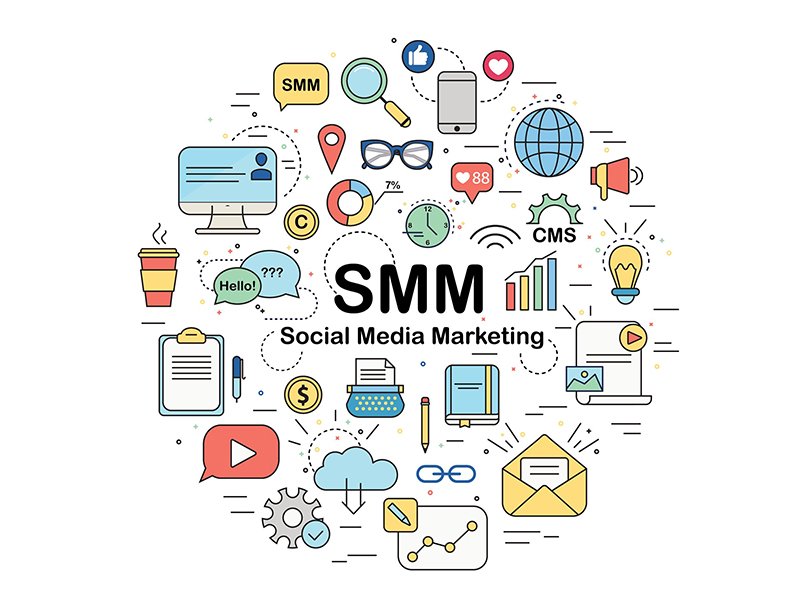Optimizing Social Media Marketing: Top Benefits & Challenges in 2024

Introduction
Social media marketing (SMM) remains a crucial part of business strategies in 2024. Companies use platforms like Facebook, Instagram, LinkedIn, and TikTok to connect with customers, raise brand awareness, and increase sales. However, evolving algorithms, market oversaturation, and changing consumer behavior mean that effective SMM requires a robust strategy. This article explores the top advantages and disadvantages of SMM while offering tips for maximizing its potential.
Advantages of Social Media Marketing
- Increased Brand Awareness and Reach
Social media platforms enable businesses to engage billions of users globally. With over 4.9 billion active social media users as of 2024, platforms like Facebook, Instagram, and LinkedIn provide opportunities to expand brand visibility. The size of social networks ensures a broad reach, even for small businesses. - Cost-Effectiveness
Creating accounts on social platforms is free, and even paid ads are relatively affordable compared to other marketing channels. Organic posts, if well-planned, can also attract significant engagement, driving traffic without large ad investments. - Targeted Advertising and Customer Segmentation
Social platforms provide detailed insights into users’ demographics, interests, and behaviors. This allows businesses to create highly targeted campaigns that reach specific audiences, improving conversion rates and marketing ROI. - Real-Time Customer Engagement and Feedback
Social media offers real-time interaction with customers, helping businesses respond to queries, address complaints, and foster brand loyalty. Quick responses lead to higher satisfaction and stronger relationships with customers. - Market Insights and Competitor Analysis
Through monitoring social media trends, companies can understand customer preferences, industry developments, and competitors’ strategies. This data helps in adjusting marketing plans to stay ahead.
Disadvantages of Social Media Marketing
- Oversaturation of Platforms
With thousands of brands competing for user attention, it can be challenging to stand out. As more companies invest in SMM, organic reach declines, increasing the need for paid advertising to maintain visibility. - Constant Algorithm Changes
Platforms like Facebook and Instagram frequently modify their algorithms, which can drastically affect organic reach and engagement. Businesses must adapt quickly to these changes to avoid losing followers or diminishing ad performance. - Time-Consuming Nature
Managing social media requires time and effort to create engaging content, monitor interactions, and respond promptly to customer inquiries. Without a well-organized team, maintaining multiple channels can overwhelm businesses. - Negative Feedback and Reputation Management
Dissatisfied customers or negative comments on social platforms can harm a brand’s reputation. Handling criticism publicly requires tact and consistency to prevent damage to brand perception. - Platform Dependence and Limited Control
Relying too heavily on a single platform can be risky, as companies are subject to the rules and algorithms of the platform. Bans, account restrictions, or policy changes could disrupt operations and customer outreach efforts.
Tips for Success in Social Media Marketing
- Develop a Well-Planned Strategy
A clear content plan aligned with business goals ensures consistency and helps businesses adapt to platform changes. Including employee advocacy can enhance organic reach through shared posts. - Invest in SMM Experts
Partnering with professionals or agencies that understand platform algorithms and audience behavior can optimize campaigns and improve ROI. - Monitor Metrics and Use Analytics
Tools like Google Analytics or Facebook Insights help track the effectiveness of campaigns. Regularly reviewing these metrics ensures continuous improvement. - Adapt to Trends and Innovations
Keep an eye on technological changes like AI, machine learning, and Web 3.0 developments. New features, including tokenization and NFTs, can provide unique ways to engage users.
Conclusion
While social media marketing offers businesses significant opportunities to engage customers, grow brand visibility, and drive sales, it also comes with challenges like platform changes and market saturation. Success lies in crafting a solid strategy, staying updated on trends, and investing in the right tools and talent. With a thoughtful approach, businesses can maximize their social media marketing efforts for sustainable growth in 2024 and beyond.
Author

Michael Davis
Michael Davis is a dedicated content creator at The Bizz Global, focusing on Business, Finance, Technology, and Lifestyle. With a knack for breaking down complex topics, Michael ensures that readers stay informed and engaged with the latest industry trends. His passion for clear and concise writing makes him a trusted voice in the field.






